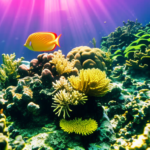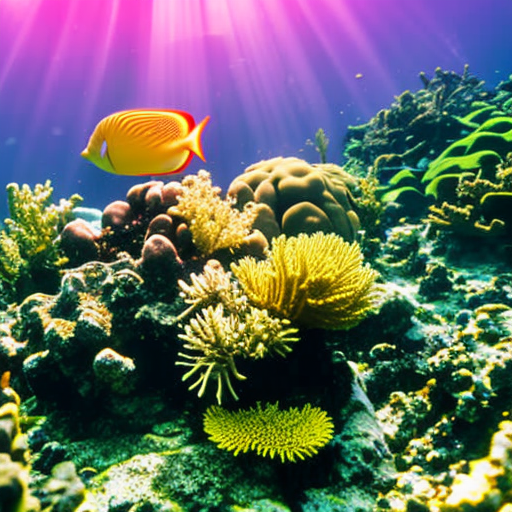Summary:
Marine biology is the study of organisms that live in the ocean and other bodies of saltwater. It encompasses a wide range of disciplines, including ecology, physiology, genetics, and conservation. Marine biologists study the interactions between marine organisms and their environment, as well as the impact of human activities on marine ecosystems. They also play a crucial role in understanding and protecting marine biodiversity.
Overview:
Marine biology is a branch of biology that focuses on the study of marine organisms, their behaviors, and their interactions with the environment. It encompasses a wide range of disciplines, including ecology, physiology, genetics, and conservation. Marine biologists study everything from microscopic plankton to large marine mammals, and from the depths of the ocean to the intertidal zone.
Marine Ecosystems:
Marine biologists study the diverse ecosystems found in the ocean, including coral reefs, kelp forests, estuaries, and deep-sea hydrothermal vents. These ecosystems are home to a vast array of organisms, each adapted to their specific environment. Marine biologists investigate the interactions between different species and the physical and chemical factors that influence their distribution and abundance.
Marine Organisms:
Marine biologists study a wide variety of organisms, including fish, marine mammals, invertebrates, algae, and bacteria. They investigate their anatomy, physiology, behavior, and life cycles. For example, marine biologists may study the migration patterns of whales, the feeding habits of sharks, or the reproductive strategies of coral.
Conservation:
Marine biologists play a crucial role in understanding and conserving marine biodiversity. They study the impacts of human activities on marine ecosystems, such as overfishing, pollution, and climate change. By monitoring and assessing the health of marine ecosystems, they can provide recommendations for sustainable management and conservation strategies.
Research Techniques:
Marine biologists use a variety of research techniques to study marine organisms and ecosystems. These include underwater photography and videography, acoustic monitoring, satellite tracking, genetic analysis, and remote sensing. They may also conduct experiments in controlled laboratory settings or conduct fieldwork in remote and challenging environments.
Career Opportunities:
Marine biology offers a wide range of career opportunities. Marine biologists can work in academia, government agencies, non-profit organizations, and private industry. They may conduct research, teach, or work in conservation and environmental management. Some marine biologists also work in aquariums or marine parks, where they care for and study marine animals in captivity.
Challenges:
Marine biology faces several challenges, including the vastness and complexity of the marine environment, limited funding and resources, and the impacts of climate change and pollution. However, advancements in technology and increased awareness of the importance of marine ecosystems have helped to address these challenges and drive progress in the field.
Conclusion:
Marine biology is a diverse and interdisciplinary field that plays a crucial role in understanding and conserving marine ecosystems. Marine biologists study a wide range of organisms and ecosystems, using various research techniques to unravel the mysteries of the ocean. Their work is essential for the sustainable management and conservation of marine biodiversity, as well as for our understanding of the impacts of human activities on the marine environment.












